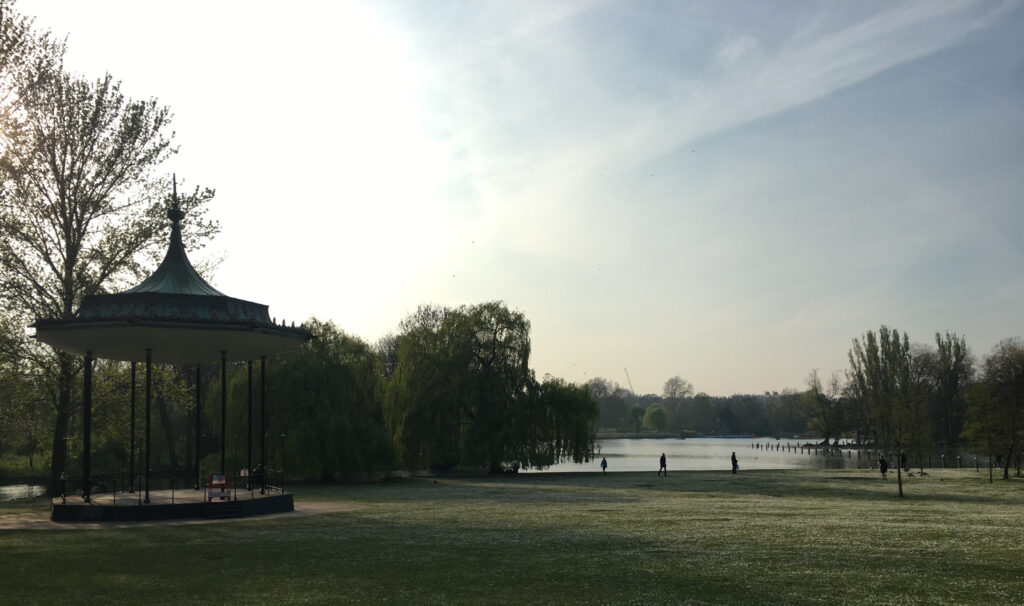I am a language support teacher working in three primary schools in Murcia. My youngest daughter attends a school in Spain as well, and when the schools closed we decided to return to England to be with my wife and eldest daughter.
We are very grateful to Norwegian Airways, my new favourite airline, for not cancelling our flight from Alicante to London. I had managed to buy some of the last seats at sensible prices.
The drive from Ricote to the airport was on empty roads and the airport itself was subdued and tense. Many people wore face masks. I had rented a car at a rate of 50c a day for two days. As I said to my daughter at the airport, her over-priced chocolate bar cost more than the car. The car hire representative told me they had only two bookings that day. They are probably closed now.
Gatwick Airport was very different. Britain had still not faced up to the crisis at that point and it had an appearance of normality. Within a few days, however, bars and restaurants and schools were closed, as well as all non-essential shops.
The British Government policy had been to expose the population to the virus and build “herd immunity”. They now deny this was their policy. However, a study then showed that possibly half a million people would not survive and the health service would fail, and so they did a u-turn and followed Europe’s example. They now deny they did a u-turn.
Some claim that the economic and human costs of shutting the economy, together with the other social costs, are too high a price to pay. Boris Johnson’s own battle with the virus has so far protected him from much criticism.
Lockdown here is not yet as strict as it is in Spain. We are allowed out for exercise and you commonly see children cycling and walking with their parents. We are not allowed to be outside with people we don’t live with. We can only shop for essentials. One police authority threatened to examine shopping baskets to ensure compliance!
For the first few days supermarkets suffered from panic buying, particularly pasta, tinned tomatoes, toilet rolls and flour. Now everything is readily available except flour.
My wife works in a school which is continuing to stay open for the children of key workers and for vulnerable children. But otherwise we are mainly at home, and can enjoy the spring sunshine in our garden. Sometimes It hardly feels like a crisis at all, until you remember what is happening in the hospitals and care homes around the world. I read the El Pais English edition every day.
On Thursdays we go outside and applaud the bravery of the health workers and others who are helping to keep the country functioning. We read, watch netflix, do yoga and bake bread and zoom our friends. And we wait.
Soy auxiliar de conversación y trabajo en tres colegios de Murcia. Mi hija menor también va al colegio en España y, cuando los colegios cerraron, decidimos volver a Inglaterra para estar con mi mujer y mi hija mayor.
Estamos enormemente agradecidos a Norwegian Airways, mi nueva aerolínea favorita, por no cancelar nuestro vuelo de Alicante a Londres. Conseguí comprar dos de los últimos billetes a precio razonable.
El trayecto de Ricote al aeropuerto transcurrió por carreteras vacías, incluso el propio aeropuerto estaba sumergido en una calma tensa. Mucha gente llevaba mascarillas. Había alquilado un coche durante dos días por 50 céntimos. Como le dije a mi hija en el aeropuerto, su carísima chocolatina costaba más que el coche. El empleado de la empresa de alquiler de coches me dijo que sólo le habían alquilado dos coches aquel día. Probablemente esté cerrado ahora.
En el aeropuerto de Gatwick las cosas eran muy diferentes. Reino Unido todavía no se había enfrentado a la crisis y todo presentaba una apariencia de normalidad. Sin embargo, unos días más tarde, bares, restaurantes y colegios cerraban, así como comercios no esenciales.
La política del gobierno británico había sido exponer a la población al virus para crear “inmunidad de rebaño”. Ahora niegan que esa fuese su política. Sin embargo, un estudio ya por entonces reflejaba la posibilidad de que medio millón de personas no sobreviviesen y que el sistema sanitario colapsaría, así que dieron un giro de 180º y siguieron el ejemplo de Europa. Ahora niegan que diesen tal giro.
Algunos afirman que el coste económico y humano de parar la economía, junto con los demás costes sociales, son un precio demasiado alto que pagar. La propia batalla de Boris Johnson contra el virus lo ha protegido de muchas críticas.
El confinamiento aquí no es tan estricto como en España. Podemos salir a hacer ejercicio y normalmente se ve a niños montando en bici y caminando con sus padres. No podemos estar en la calle con gente con la que no vivimos. Sólo podemos comprar bienes esenciales. ¡La policía amenazó con registrar las cestas de la compra para asegurarse!
Los primeros días los supermercados sufrieron el pánico en las compras, principalmente pasta, tomate en conserva, papel higiénico y harina. Ahora todo está disponible con facilidad excepto la harina.
Mi mujer trabaja en un colegio que continúa abierto para hijos de trabajadores esenciales y para niños en situación de vulnerabilidad. Aparte de eso, estamos en casa y podemos disfrutar del sol primaveral en nuestro jardín. A veces apenas parece que estemos en crisis, hasta que recuerdas lo que está pasando en los hospitales y centros asistenciales en todo el mundo. Leo la edición en inglés de El País cada día.
Los jueves salimos fuera a aplaudir la valentía de los sanitarios y otros trabajadores que están ayudando a que el país continúe funcionando. Leemos, vemos Netflix, hacemos yoga, hacemos pan y hacemos videollamadas con nuestros amigos. Y esperamos.
By Tim Gunn

